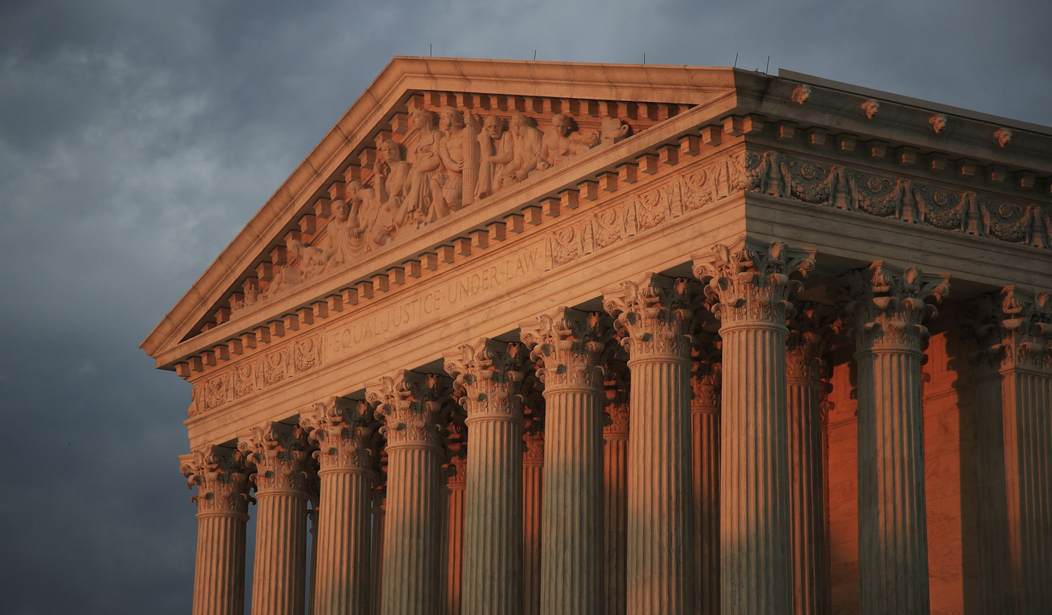In a misguided hit-piece—“Justice Gorsuch is wrong: ‘originalist’ judges make stuff up too”—Kim Wehle renews a discredited objection to originalism.
Originalism is a method of interpretation that adheres to the Constitution’s words as understood at the time of adoption. For originalist judges, rights protected by the Constitution at the time of ratification are rights that deserve protection today, since the meaning of the Constitution as ratified by the people cannot change, except through amendment by the people. That is why we have a written constitution in the first place. But, for “living constitutionalists,” the judge is like a king who giveth and taketh away; in their view, the meaning of the Constitution—and the content of the people’s rights—can change depending on the policy views of a majority of the Court . . . a mere five judges.
With refreshing candor, Ms. Wehle admits that living constitutionalists, or what she terms “functionalists” or “purposivists,” make stuff up. Such “judges put their policy goals on the table for the rest of us to see and evaluate.” But having conceded that living constitutionalism is just politics, she seeks to take originalism down with it. “Originalist judges,” she asserts, “make stuff up too.”
Respectfully, Ms. Wehle is wrong. The only example she points to, Kyllo v. United States, contradicts her claim. In that case, Justice Scalia wrote that use of a thermal imaging device to detect what might be inside a home qualified as a “search” that would trigger protections under the Fourth Amendment. Contrary to Ms. Wehle’s portrayal, Justice Scalia, an originalist, did not make up the law and resort to public policy; rather, he examined the words of the Amendment, which provides that “[t]he right of the people to be secure in their persons, houses, papers, and effects, against unreasonable searches and seizures, shall not be violated.” And relying on deep roots at common law that at its core protected the home, Justice Scalia concluded correctly that protecting the home from a thermal imaging search “assures preservation of that degree of privacy against government that existed when the Fourth Amendment was adopted.”
Disregarding Justice Scalia’s actual reasoning in the case, Ms. Wehle charges that Justice Scalia made up the law because thermal imagers weren’t in existence at the time of ratification. But that assertion fails too. As Justice Scalia explained, a “search” at the time of ratification meant “[t]o look over or through for the purpose of finding something” or “to examine by inspection.” That definition applies with as much force today as it did in 1791. And so a police search of a home is still a search whether it is conducted by means of physical intrusion or by sophisticated new technology that can surveil its interior. Yes, newfangled spying devices will emerge that the founders never anticipated. But that just shows that a search can be carried out in newfangled ways; it does not change what a search is, nor does it diminish our constitutional rights protecting against such a search.
Originalism thus protects our constitutional rights no matter what inventive ways the State may devise to evade them. It is Ms. Wehle’s anti-originalist approach that would erode our rights. Instead of adhering to text and original meaning, she would invoke, more abstractly, the “function” and “goals” of the Fourth Amendment. But where has that led us? Taking a so-called “functionalist” approach, the Court has said that the Fourth Amendment protects a person’s “reasonable expectation of privacy” (an open-ended and thus highly manipulable turn of phrase) and held, for example, that a search of the interior of a person’s home by aerial surveillance is no search at all under the Fourth Amendment, since according to the judges he could not reasonably expect “privacy” from the sky. How perverse when the judges’ presumed “goal” of the Fourth Amendment in protecting a generalized “privacy” eliminates a specific protection in the home the Fourth Amendment originally guaranteed. Yet that is the world in which “functionalists” would have us inhabit.
When judges stray from text and original meaning, we end up with topsy-turvy results like this. That is precisely what Justice Gorsuch meant when he warned about the dangers that come from judges making stuff up. “[T]he framers chose not to protect privacy in some ethereal way dependent on judicial intuitions,” the Justice has written. “They chose instead to protect privacy in particular places and things—‘persons, houses, papers, and effects’—and against particular threats—‘unreasonable’ governmental ‘searches and seizures.’” When one actually takes the time to examine the specific text and original understanding of our Constitution—which Ms. Wehle did not bother to do in her legal analysis of Kyllo—the answer to many cases such as the one discussed above becomes clear.
Eric Tung is an attorney in California. He is a former law clerk to Justice Gorsuch and Justice Scalia.

























Join the conversation as a VIP Member